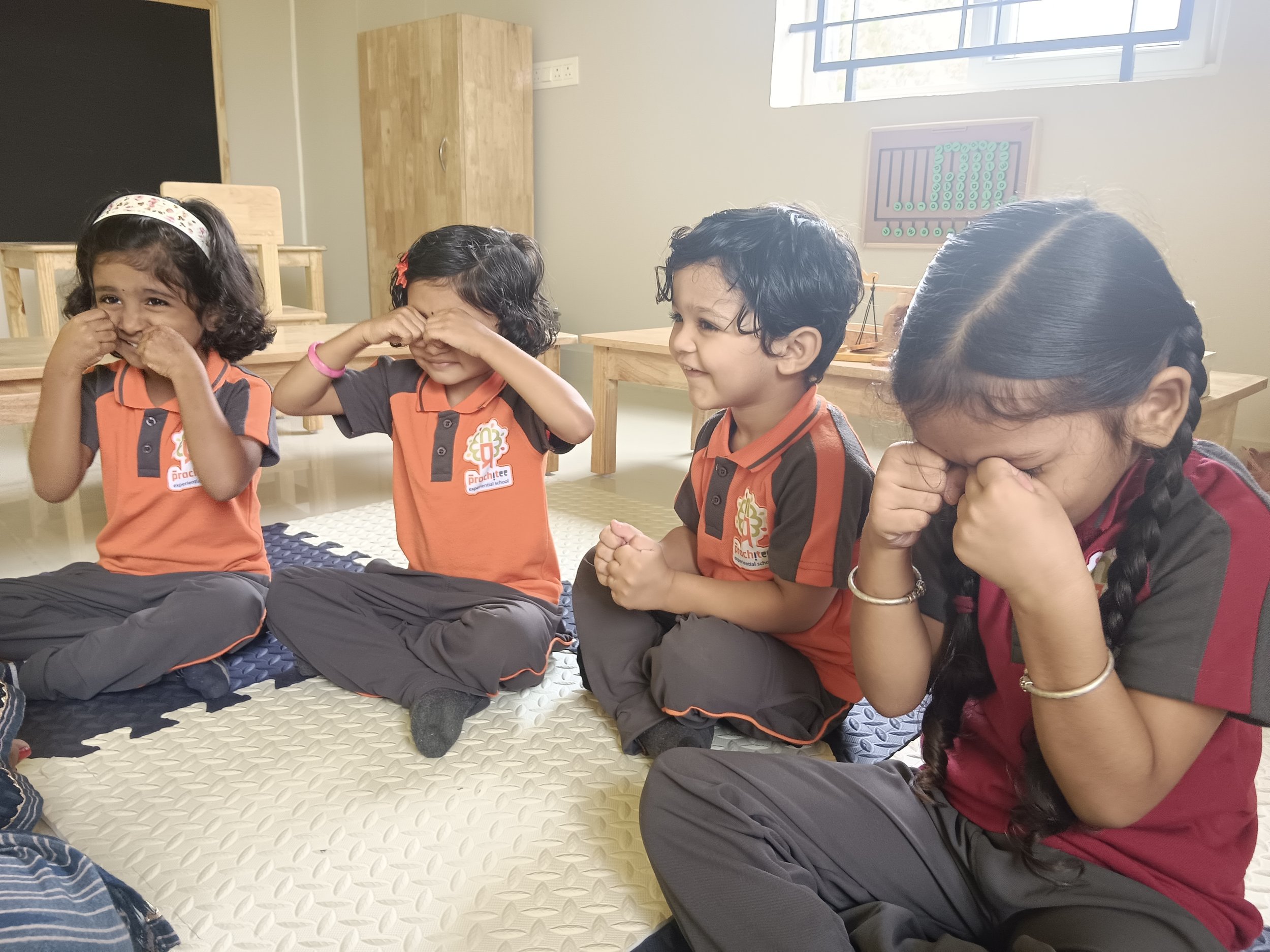"Empowering Young Explorers through Collaborative Learning Adventures" By Ms. Vinodhini Rajan
Children learn from each other and teach others - the power of collaborative learning!
One of the most beautiful aspects of childhood is the incredible ability of children to learn and grow together. They possess a natural curiosity, an eagerness to explore, and an innate desire to share their knowledge with others. It is through this process of interacting, teaching, and learning together that they become little catalysts for each other's development.
When children engage in collaborative learning, amazing things happen. They inspire each other, challenge each other's ideas, and bring unique perspectives to the table. In this dynamic environment, they develop crucial skills such as communication, empathy, and problem-solving, which are essential for their future success.
Whether it's building blocks, solving puzzles, or playing imaginative games, children learn so much when they work together. They learn to negotiate, compromise, and respect each other's ideas. Each child brings their own strengths, interests, and experiences, enriching the collective knowledge of the group.
Children teaching others is a powerful way to solidify their own understanding. As they explain concepts to their peers, they reinforce their own knowledge and gain a deeper understanding of the subject matter. Moreover, they learn patience, empathy, and the importance of effective communication.
Young children also gain various benefits such as:
Building Social Skills
Collaborative learning in preschool provides an ideal platform for children to develop vital social skills. By engaging in group activities, such as working on projects or solving puzzles together, children learn how to communicate, share ideas, and collaborate effectively. They gain an understanding of the importance of listening to others, respecting different perspectives, and compromising. These early interactions lay the foundation for healthy social interactions and cooperation throughout their lives.
Encouraging Cognitive Development
Collaborative learning in preschool stimulates cognitive development by fostering active engagement and critical thinking. When children collaborate with their peers, they are exposed to diverse perspectives and thought processes. This exposure promotes creativity and problem-solving skills as they learn to think outside the box and consider alternative solutions. Additionally, collaborative learning provides opportunities for children to explain their ideas and reason with others, which further strengthens their cognitive abilities.
Fostering Language Development
Preschool is a critical period for language development, and collaborative learning plays a vital role in this process. When children collaborate, they engage in conversations, share ideas, and express their thoughts. This constant interaction helps expand their vocabulary, improve their language fluency, and refine their communication skills. Moreover, collaborative learning encourages active listening, which is essential for understanding and interpreting different perspectives effectively.
Developing Emotional Intelligence
Collaborative learning in preschool offers a nurturing environment for children to develop emotional intelligence. Through collaboration, children learn to empathize with their peers, understand their emotions, and regulate their own emotions accordingly. They learn to manage conflicts, negotiate, and find mutually beneficial solutions. These experiences foster emotional resilience, empathy, and self-awareness, which are essential skills for building positive relationships and navigating future challenges.
Promoting Cultural Understanding
Collaborative learning in preschool creates opportunities for children from diverse backgrounds to interact and learn from each other. By engaging in collaborative projects, children develop an appreciation for different cultures, traditions, and perspectives. They learn to value diversity and develop a sense of inclusivity from an early age.
Collaborative learning in preschool holds immense potential for shaping well-rounded individuals with strong social, cognitive, and emotional skills. By creating an environment that fosters collaboration, educators empower children to become active learners, critical thinkers, and effective communicators. Preschoolers who experience collaborative learning not only thrive academically but also develop the necessary skills to succeed in the ever-evolving global society. As we recognize the power of collaboration, let us embrace its benefits and prioritize its integration into early education, ensuring a brighter future for our young learners.
So let's celebrate the incredible capacity of children to learn from each other! Let's encourage them to be both teachers and learners, and let's create spaces where they can come together, share ideas, and grow together. Together, we can inspire a generation of lifelong learners who understand the true power of collaboration.






